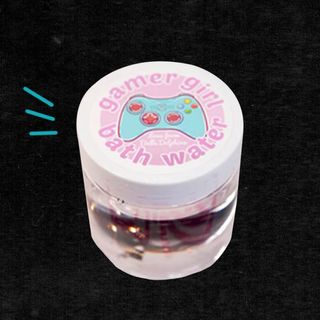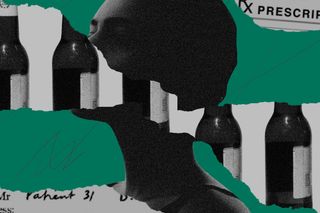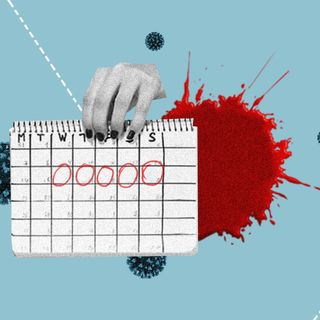
Lack of Access to Support Groups During Lockdown Puts Recovering Addicts at Risk for Relapse
For people with substance use disorders, support groups are safety nets that help them become and stay sober outside a formal treatment facility.

S.M., 38, is five years sober and owes his sobriety solely to a Mumbai-based support group he’s a part of. “I had lost everything to my addiction — my job, marriage, and kids. If I’m alive, it’s because of the group,” he says.
The lockdown has not only led to increased anxiety for this group, but the restrictions on movement have also meant no access to such support networks. “We have not been able to meet [since the lockdown] and… from what I know, eight of us from a group of thirty have already slipped back into drinking,” S.M. says.
For people with substance use disorders (SUDs) like him, support groups are safety nets that help them become and stay sober outside a formal treatment facility. Members use meetings to talk about their feelings and the steps they are taking to avoid alcohol or other substances.
Support groups are crucial, as they offer a sense of community, which has been shown to reduce stress, depression, and anxiety. The loss of such community can play havoc with addicts’ mental health, says behavioral therapist Dr. Anand Shah, who runs Care for All, a Mumbai-based support group. Talking about one of his patients, a recovering drug addict, Dr. Shah says, “His family called to inform he was experiencing heavy withdrawal symptoms. On speaking to him, I found out that he had tried to commit suicide too. He’s back to smoking marijuana now. Five years of efforts have been wasted and we don’t know if he would be willing to work on it again.”
A data report by the social defense division of the Ministry of Social Justice and Empowerment stated that the national helpline witnessed a surge of about 200% rise in distress calls from alcoholics, drug addicts, and family members since the lockdown was announced. To meet this increasing demand, members of support groups have been offering online assistance through platforms such as Google Meet, Zoom, and WhatsApp.
But these methods are barely of any help for recovering addicts, mainly owing to the absence of physical interaction and intimacy. “It means a lot when someone hugs us, holds our hands or claps for us when we talk about our achievements. Without these moments or someone to cheer for us in person, it feels like all our efforts have gone in vain,” S.M. explains.
Related on The Swaddle:
A Domestic Abuse Pandemic Is Ensuing Under Covid19 Lockdown
“Patients are not used to services delivered through helplines or online and may fail to utilize such services adequately,” say Sidharth Arya and Rajiv Gupta from the State Drug Dependence Treatment Centre, Pt. BDS University of Health Sciences in Haryana, in a paper.
S.M. too has left various WhatsApp groups and missed online meetings. “The flurry of messages that are full of tasks — like listing what you did all day, what you are grateful for — make addicts like us very anxious. It is like someone is always standing on our head when it’s already so difficult to do something as simple as getting a glass of water,” he says.
With in-physical meetings, members engage in community services, such as serving tea and snacks and arranging other activities. This becomes an essential part of their recovery, as it forces them to attend meetings because other members rely on them. In the digital space, there are no such activities and, hence, less incentive to attend online sessions. For many, “support groups are their only social network, their only group to socialize with. The lockdown has left many of them alone,” according to a member of Alcoholics Anonymous (AA), a support group for alcoholics.
Apart from those at risk of relapse, these groups are also crucial for those without access to the substance they are addicted to. According to Dr. Shah, about 20% of addicts fall in the high-risk group, who may experience delirium tremens — a severe form of withdrawal that has a high mortality rate. For these patients, he explains, it becomes very important to immediately seek help from their support group or doctors. In the absence of support groups in such cases, patients and family members are therefore relying on help from doctors.
“There has been a 20% rise in cases of patients dealing with addiction or their family members contacting me for help,” says Dr. Natasha Kate, a consultant psychiatrist at Mumbai’s Masina Hospital. While she has been consulting patients and offering counseling sessions online, she stresses on how important it is for doctors to examine addiction patients physically. “It helps doctors understand patients’ body language, the willingness to accept change, and changes in their behavior when they are lying. In-person meetings help us understand why they lied if they did and why they got addicted in the first place,” she says.
However, prescribing medication and getting access to them still remains a problem. “These are very strong medications and impossible to get over the counter without a prescription. Just counseling is not enough, addiction requires a proper management system, which the lockdown has hampered,” she adds.
The pandemic has had a profound effect on all kinds of health services globally. According to Arya and Gupta, the closure of rehabilitation centers due to the lockdown has resulted in patients being discharged prematurely. This partial treatment has left SUD patients at risk of relapse, highlighting the need to offer them urgent attention. However, “instead of upscaling to meet the extra demand, these services are likely to be subjected to significantly reduced funding due to the crisis, limiting their availability and provisions.”Therefore, according to the authors, there is an urgent need for treatment services to adapt to changing scenarios and come up with practical solutions to help people with SUDs.
“The government has never really bothered to do anything for patients in our category either by setting up special services or funding for our treatments. So it’s not new that we have been neglected. What we want is the restoration of our support group meetings because we are ready to do it with precautions in place. We just need permission to meet. It’ll save a lot of lives,” says S.M.
Anubhuti Matta is an associate editor with The Swaddle. When not at work, she's busy pursuing kathak, reading books on and by women in the Middle East or making dresses out of Indian prints.
Related


What It’s Like to Live With: Muscular Dystrophy.
